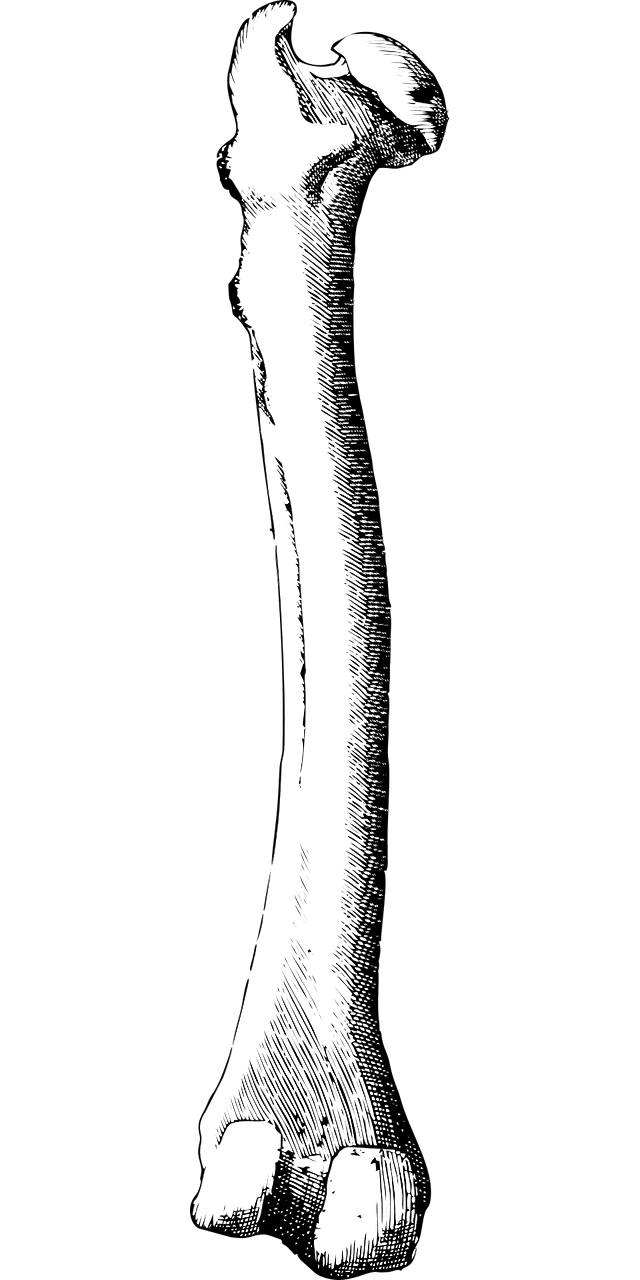Have you ever wondered if marrow bones are safe for your adorable little puppy? Well, you're not alone! Many pet owners have questioned whether giving marrow bones to their furry friends is a good idea. In this article, we'll explore the safety of marrow bones for puppies and provide you with important information to help you make an informed decision. So, sit back, relax, and let's dig into this juicy topic together!
Understanding Marrow Bones
What are Marrow Bones?
Marrow bones are types of bones that contain nutrient-rich marrow in the inner core. They are often derived from beef or other large animals. The marrow is a soft, fatty tissue that provides essential nutrients for both humans and animals. Marrow bones are widely sought after for their numerous health benefits and are popular as a natural treat for puppies.
Nutritional Value of Marrow Bones
Marrow bones are highly nutritious, providing puppies with an array of essential vitamins and minerals. The marrow itself is rich in healthy fats, vitamins A and K, omega-3 fatty acids, and trace minerals like zinc and iron. These nutrients are vital for the overall development, growth, and well-being of puppies.
Types of Marrow Bones
There are various types of marrow bones available for puppies, including femur bones, knuckle bones, and rib bones. Femur bones are larger and more substantial, often containing a generous amount of marrow. Knuckle bones are smaller and provide a more challenging chewing experience. Rib bones, which are smaller and more flexible, are suitable for smaller breeds or puppies with delicate jaws. Each type of marrow bone offers a unique chewing experience and nutritional benefits.
Benefits of Marrow Bones for Puppies
Natural Teeth Cleaning
One of the key benefits of marrow bones for puppies is their ability to naturally clean their teeth. The act of gnawing and chewing on the bone helps remove plaque and tartar buildup, preventing dental issues such as gum disease and tooth decay. Regular chewing on marrow bones can contribute to maintaining healthy teeth and gums throughout a puppy's life.
Mental Stimulation
Providing marrow bones to puppies can also offer them much-needed mental stimulation. Chewing on bones engages their minds, as they must use their problem-solving skills and focus. This mental exercise can help alleviate boredom, reduce destructive behaviors, and promote overall mental well-being.
Healthy Fat Source
Marrow bones serve as a healthy source of dietary fats for puppies. The marrow is rich in monounsaturated and polyunsaturated fats, which are essential for brain development and maintaining healthy skin and coat. Including marrow bones in a puppy's diet can help ensure they receive adequate healthy fats to support their growth and vitality.
Calcium and Phosphorus
Marrow bones are an excellent natural source of calcium and phosphorus, two crucial minerals for growing puppies. These minerals play a key role in bone development, ensuring strong and healthy skeletal structures. Regular consumption of marrow bones can aid in meeting the nutritional requirements for optimal bone growth.
Promotes Jaw Strength
The act of gnawing on marrow bones can help puppies develop strong jaw muscles. The resistance offered by bones during chewing exercises the muscles in the jaw and surrounding areas, promoting strength and durability. Strong jaw muscles are essential for proper chewing, eating, and overall oral health.

This image is property of pixabay.com.
Risks and Concerns
Choking Hazard
While marrow bones offer many benefits, they can pose a choking hazard, especially if the bones are too small or splinter easily. It is crucial to select appropriately sized bones and monitor puppies closely during chewing sessions to minimize the risk of choking.
Fractured Teeth
Aggressive chewing on marrow bones can occasionally lead to fractured teeth in puppies. Young puppies, in particular, may not have fully developed adult teeth and may be more prone to dental damage. Careful observation and choosing the right type of bone for their age and size can help minimize the risk of fractured teeth.
Gastrointestinal Issues
Some puppies may experience gastrointestinal issues after consuming marrow bones, such as loose stools or diarrhea. This can be a result of an excessive intake of fatty marrow or the bone itself not being well-tolerated by their digestive system. Gradually introducing marrow bones and closely monitoring their response can help identify any potential digestive sensitivities.
Bacterial Contamination
There is a risk of bacterial contamination, especially if the marrow bones are not handled, stored, or cleaned properly. It is important to ensure that the bones are sourced from reputable suppliers and handled with proper hygiene measures in place. Thoroughly washing the bones and storing them appropriately can help reduce the risk of bacterial contamination.
Overindulgence
While marrow bones provide numerous benefits, it is crucial to offer them in moderation to puppies. Overindulgence can lead to an imbalance in their diet, excessive intake of fats, or potential digestive issues. It is recommended to consult with a veterinarian to determine the appropriate frequency and quantity of marrow bones for individual puppies.
Age Considerations
Introducing Marrow Bones to Puppies
Marrow bones should only be introduced to puppies once they have developed a strong set of adult teeth. This typically occurs around the age of six months for most breeds. It is essential to wait until this stage to ensure that the bones can be chewed safely without the risk of dental damage.
Puppy Teething Stage
During the teething stage, puppies may experience discomfort and itching in their gums. Offering chilled marrow bones can provide relief by numbing the gums and satisfying their natural urge to chew. Chilled bones can help soothe the discomfort caused by teething and promote healthy tooth eruption.
Monitoring Chew Sessions
It is crucial to supervise puppies during their marrow bone chewing sessions. This allows you to observe their chewing habits, ensure they are not attempting to swallow large chunks of the bone, and step in if any adverse reactions occur. Supervision also helps prevent potential accidents and can be an opportunity to reinforce positive behaviors.
Consulting with a Veterinarian
Before introducing marrow bones to puppies, it is recommended to consult with a veterinarian. They can provide personalized advice, taking into account the specific needs and health considerations of individual puppies. Veterinarians can offer guidance on the appropriate size, frequency, and suitability of marrow bones for each puppy.

This image is property of pixabay.com.
Selecting Safe Marrow Bones
Appropriate Size
When selecting marrow bones for puppies, it is important to choose ones that are appropriately sized. Bones should be large enough to prevent accidental swallowing or lodging in the throat, but not so large that they become too difficult to chew. The bone size should be proportional to the size and age of the puppy, ensuring a safe and enjoyable chewing experience.
Raw or Cooked Bones
Raw marrow bones are generally preferred over cooked bones for puppies. Raw bones are softer, less likely to splinter, and easier for puppies to chew. Cooked bones may become brittle and prone to splintering, posing a potential choking or injury risk. It is essential to avoid giving puppies cooked bones and opt for raw bones instead.
Avoiding Splintering
To minimize the risk of splintering, it is advisable to select marrow bones that are thicker and less likely to break apart easily. Choosing harder bones with good structural integrity, such as weight-bearing bones, can help reduce the chances of accidental splintering during chewing.
Non-Weight-Bearing Bones
Non-weight-bearing bones, such as rib bones or knuckle bones, are generally considered safer options for puppies compared to weight-bearing bones like femur bones. Non-weight-bearing bones are more flexible, making them less likely to cause dental fractures or injuries. It is important to assess the size, thickness, and overall suitability of each bone for the specific puppy.
Premium-Quality Bones
It is crucial to source marrow bones from reputable suppliers who provide high-quality bones. Premium-quality bones undergo proper processing and handling, ensuring that they are safe and free from contaminants. Carefully selecting bones from trusted sources can significantly reduce the risk of bacterial contamination and other health concerns.
How to Introduce Marrow Bones to Puppies
Slow and Gradual Introduction
It is recommended to introduce marrow bones to puppies gradually. Start by offering small pieces of bone or bone fragments during supervised chewing sessions. Gradually increase the size of the bones as the puppy becomes accustomed to chewing and handling them. This gradual introduction helps the puppy adjust to the bones and ensures their safety and comfort.
Supervised Chewing Sessions
Always supervise puppies while they chew on marrow bones. This allows you to closely monitor their chewing habits, identify any potential issues, and intervene if necessary. Supervision also provides an opportunity to reinforce positive behaviors and discourage any destructive chewing tendencies. Regularly check the condition of the bone for signs of splintering or wear.
Positive Reinforcement
Using positive reinforcement during marrow bone chewing sessions can help puppies associate this behavior with reward and pleasure. Offer praise, petting, or small treats when the puppy engages positively with the bone. This positive reinforcement helps create a positive experience and encourages them to continue engaging in appropriate chewing behavior.
Proper Storage
Properly storing marrow bones is essential to ensure their safety and freshness. Once a chewing session is over, clean and dry the bone thoroughly before storing it in a cool, dry place. Avoid leaving bones lying around where they may attract pests or become dirty. Adequate storage helps maintain the integrity of the bone and reduces the risk of bacterial contamination.

This image is property of pixabay.com.
Alternatives to Marrow Bones for Puppies
Rubber Chew Toys
Rubber chew toys designed specifically for puppies can offer a safe and durable alternative to marrow bones. These toys are designed to withstand the rigors of chewing and can provide a satisfying outlet for a puppy's natural chewing instincts. Look for toys made from non-toxic materials and ensure they are appropriately sized for the puppy.
Natural Antlers
Natural antlers, particularly deer antlers, are another alternative to marrow bones for puppies. Antlers are dense and long-lasting, providing puppies with a stimulating chewing experience. They are naturally shed, making them an environmentally friendly option. However, it is important to select antlers that are appropriately sized for the puppy and monitor their chewing habits closely.
Edible Dental Chews
Edible dental chews specifically formulated for puppies can be a suitable alternative to marrow bones. These chews are designed to promote dental health by reducing plaque and tartar buildup. They often contain ingredients beneficial for oral hygiene, such as enzymes or abrasive texture. Choose chews made from safe, natural ingredients and follow the manufacturer's guidelines for appropriate use.
Frozen Carrots or Apples
Frozen carrots or apple slices can serve as soothing and nutritious chew options for puppies. These fruits offer both texture and flavor stimulation, and the cold temperature can provide relief during the teething stage. Ensure that the carrots or apples are cut into appropriate sizes for safe chewing and monitor the puppy during the chewing session.
Interactive Puzzle Toys
Interactive puzzle toys are excellent alternatives for providing mental stimulation to puppies. These toys often involve hiding treats or kibble inside compartments or puzzles that the puppy needs to solve to access the reward. Puzzle toys can keep puppies entertained, mentally engaged, and provide a positive outlet for their energy and natural curiosity.
Signs of Potential Issues
Choking or Gagging
If a puppy starts choking or gagging while chewing on a marrow bone, immediate intervention is necessary. Take the bone away and ensure the puppy's airway is clear. If the choking persists or the puppy shows signs of distress, seek emergency veterinary care.
Excessive Drooling
Excessive drooling beyond what is usual during chewing sessions may indicate discomfort or oral irritation. This could be a sign of an allergic reaction, dental issue, or digestive upset. Observe the puppy closely and consult a veterinarian if the excessive drooling persists or is accompanied by other symptoms.
Vomiting or Diarrhea
If a puppy develops vomiting or diarrhea after consuming a marrow bone, it may be a sign of digestive upset. Monitor the puppy's symptoms and provide them with plenty of water to stay hydrated. If the symptoms worsen or persist for more than 24 hours, consult a veterinarian for further guidance.
Disinterest in Food
A sudden loss of appetite or disinterest in food may indicate an underlying issue related to the consumption of marrow bones. If a puppy shows a noticeable change in their eating habits or refuses food altogether, it is recommended to seek veterinary advice to determine the cause and address any potential concerns.
Abdominal Pain or Distension
Unusual abdominal pain or distension (swelling) after consuming a marrow bone requires immediate veterinary attention. These symptoms may indicate an obstruction or gastrointestinal issue. Prompt medical evaluation is essential to ensure the puppy's well-being and prevent any complications.
Consulting with a Veterinarian
Importance of Professional Advice
It is essential to consult with a veterinarian before introducing marrow bones or any alternative chew options to puppies. Veterinarians have the expertise to assess the specific needs, health conditions, and breed characteristics of individual puppies. Their professional advice can guide puppy owners in making informed decisions regarding bone selection, portion control, and overall safety.
Addressing Individual Puppy Needs
Each puppy is unique, and their nutritional requirements may vary. A veterinarian can evaluate specific factors such as size, age, breed, and any underlying health concerns to provide tailored recommendations. They can address any individual dietary needs or restrictions, ensuring the puppy's nutritional balance and overall well-being.
Specific Breed Considerations
Certain breeds may have unique dental or chewing characteristics that should be taken into account when selecting chew options. For example, brachycephalic breeds with short snouts may have difficulty chewing on larger bones. Breed-specific considerations can help determine the most suitable chew options for a particular puppy.
Monitoring Overall Health
Regular check-ups with a veterinarian are essential to monitor a puppy's overall health and well-being. During these visits, the veterinarian can assess the puppy's growth, dental health, and any potential concerns related to marrow bone consumption. They can provide guidance on maintaining a balanced diet and ensure the puppy's vitality.
Conclusion
When it comes to marrow bones for puppies, understanding the benefits and risks is crucial for providing a safe and enriching chewing experience. Marrow bones offer natural teeth cleaning, mental stimulation, and a healthy source of fats, calcium, and phosphorus. However, it is important to be aware of potential risks such as choking, fractured teeth, gastrointestinal issues, bacterial contamination, and overindulgence.
Introducing marrow bones to puppies should be done gradually, with supervised chewing sessions and positive reinforcement. However, alternatives such as rubber chew toys, natural antlers, edible dental chews, frozen fruits, or interactive puzzle toys can also provide suitable alternatives. Monitoring for signs of potential issues, consulting with a veterinarian, and ensuring the selection of safe marrow bones are key to puppy safety.
Ultimately, weighing the risks and benefits, considering individual puppy preferences, and finding suitable alternatives are essential for ensuring the well-being and safety of puppies during their chewing journey. By following proper guidelines and seeking professional advice, puppy owners can provide a balanced and enjoyable chewing experience for their furry companions.


